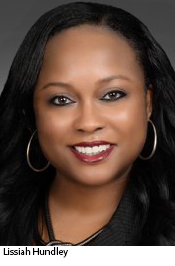
Managing ‘Unconscious Bias’ and Creating High-Functioning Teams
WASHINGTON–“If you have a brain,” says Lissia Taylor Hundley, “you’re biased.”
Hundley, vice president of workforce diversity & inclusion, military hiring and university relations with Comcast, Philadelphia, said organizational growth can be limited by biases we may not even be aware that we and others hold. These biases, she said here at the recent MBA Diversity & Inclusion Summit, can impact recruiting, performance management and salary decisions.
“Why do 80 percent of people, when they hear the word ‘manager,’ immediately think of a man?” Hundley said. “Why are 60 percent of corporate CEOs over six feet tall? Why do blonds–and blondes–make 7 percent more money than non-blonds?”
 Hundley identified nearly 250 unconscious biases. Some, like the “halo effect” (the person can do no wrong), “maternal bias,” “race bias” “groupthink” and “intuition bias” are more obvious than others.
Hundley identified nearly 250 unconscious biases. Some, like the “halo effect” (the person can do no wrong), “maternal bias,” “race bias” “groupthink” and “intuition bias” are more obvious than others.
“Sometimes we ‘box’ people into preconceived perceptions, which can affect individual and group decision-making,” Hundley said. “Becoming more aware of your biases is important–because you can’t get rid of them. What you can do is minimize them, so you can reduce their impact on your job and your team.”
These biases can impact companies’ influence in the community, Hundley said. “If we don’t get some of these biases under control; if we don’t get more diversity in the workplace, it’s going to affect our sustainability in the marketplace.”
Hundley said companies should build “high-functioning teams” that focus on recruitment with the following objectives:
–Educate recruiters and replicate sound models;
–Influence managers by discussing opportunities;
–Connect with key talent through social media, diverse forums, national partnerships and university relations;
–Build and nurture relationship with high-performing talent; and
–Present diverse pools of high-performing talent to influence hiring decisions
“Make sure you have someone on your team who is tuned into diversity and inclusion and will hold you–and the company–accountable for decision-making,” Hundley said. “We can’t make better people, but we can help them make better decisions.”
